Retirement: 5 Things to Know
Insights from experienced financial professionals.
Whether you are preparing for, or living in retirement, the financial decisions you make today can greatly impact the future for you and your family. Consider the following 5 tips to help guide your planning.
1) Don’t Underestimate the Effects of Inflation
Inflation is the increase in prices for goods and services over time. Did you know, that in retirement, inflation may be harder to overcome? That is, unless your retirement income keeps pace with, or exceeds, the effects of inflation.
2) Make an Informed Social Security Decision
The Social Security benefit that you receive is based on your highest 35 years of career earnings. It is also affected by the age at which you plan to retire. If you retire at age 62 – the earliest eligibility age for receiving benefits – your benefits would be lower than if you waited until “full retirement age” or later. For example – in 2016, the maximum monthly benefit for someone retiring at age 62 was $2,102. In contrast, someone retiring at full retirement age (currently, age 66) would receive a maximum monthly benefit of $2,639. Plus, if you don’t retire until age 70, you’d receive even more.
3) Consider Adjusting Your Asset Allocation Strategy in Retirement
Asset allocation involves strategically dividing your portfolio into different asset classes – stocks, bonds, and cash alternatives – to seek the highest potential return on risk. Diversifying your portfolio is important in working toward preserving your assets and generating income.
4) Understand Your Medical Coverage Options
Once you’ve entered the “retirement red zone,” planning may take a different course as you consider the impact of healthcare costs on your retirement income.
Long-term Care
Today, the cost of long-term care can be overwhelming. That’s why there is long term care insurance, which allows you to transfer a portion of the financial risk of long-term care costs to an insurance company. It helps you preserve independence and freedom of choice should you ever require long-term-care.
Healthcare Cost
Health-care costs have been (and will likely continue) increasing at a rate greater than inflation. In fact, medical expenses have become a major financial concern for retirees. But, you have options for health coverage: Original Medicare, Medicare Supplement Insurance (Medigap) and Medicare Advantage plans.
5) Plan to Preserve Your Investments
Did you know that an excellent way to help preserve your wealth and leave a legacy for your family is to develop an estate conservation strategy? In fact, the federal tax exclusion ($5.45 million in 2016) exempts many estates from paying federal tax. However, states may also have their own inheritance or state estate taxes. Fortunately, there are a number of strategies that can help you preserve your assets for your heirs, including an irrevocable life insurance trust (ILIT). Of course, you should always consider consulting with legal, tax and estate planning professionals before implementing any investment strategy.
Regardless of whether you’re starting a career, transitioning to retirement, or living in retirement, you need clear goals for retirement and the lifestyle you want. It’s never too early to begin saving for your future, or working toward maximizing your retirement income. The professionals at Broadview Wealth Management are here to help you identify a clear picture of where you stand, and recommend any changes to make during this crucial time.
The opinions voiced in this material are for general information only and are not intended to provide specific advice or recommendations for any individual. Asset allocation does not ensure a profit or protect against a loss. There is no guarantee that a diversified portfolio will enhance overall returns or outperform a non-diversified portfolio. Diversification does not protect against market risk.


